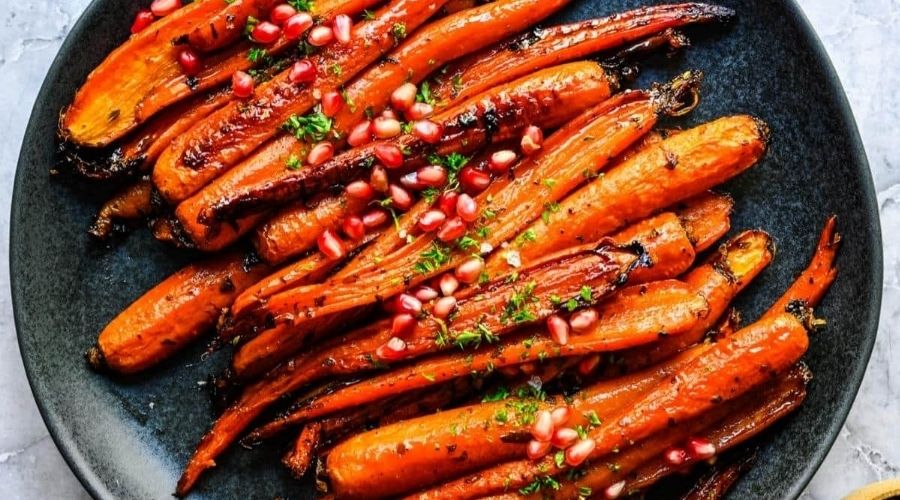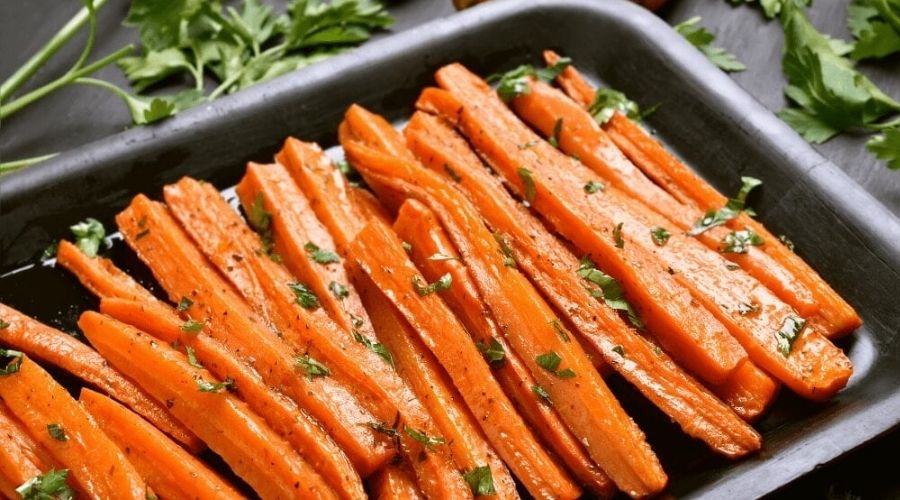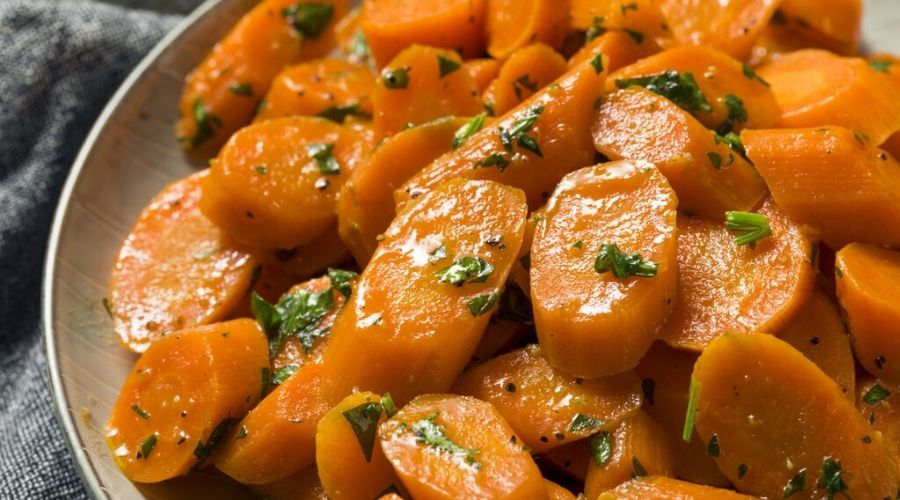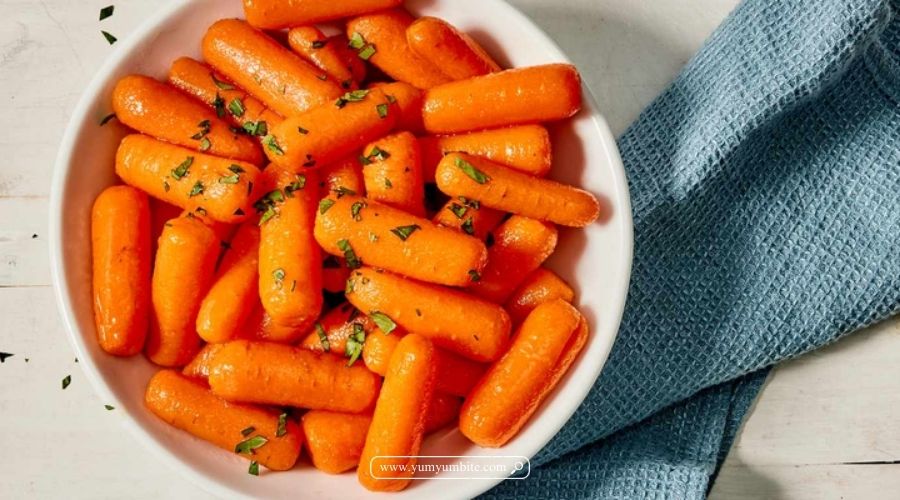Storing cooked carrots properly is essential for preserving their flavor, texture, and nutritional value.
Whether you’re preparing a large batch for meal prep or simply have leftovers from a family dinner, understanding the best practices for storage can help you enjoy this nutritious vegetable for days to come.
In this guide, we’ll explore effective methods for storing cooked carrots, how to recognize spoilage, and tips to keep them fresh and delicious.
With the right techniques, you can reduce food waste and ensure that your cooked carrots remain a delightful addition to your meals.
Why Storing Cooked Carrots Properly Matters
Storing cooked carrots properly is crucial for maintaining their nutritional value, flavor, and texture.
Carrots are a rich source of vitamins, particularly vitamin A, and antioxidants that contribute to overall health.
When cooked, their vibrant color and sweet taste can enhance various dishes, but improper storage can lead to nutrient loss, spoilage, and undesirable changes in texture.
If cooked carrots are not stored correctly, they can develop an off-putting odor, sliminess, or even mold, making them unsafe to eat.
Additionally, proper storage helps reduce food waste, allowing you to enjoy leftovers without compromising on quality.
By taking the time to store cooked carrots correctly, you ensure that they remain delicious and nutritious, ready to be included in your meals for days to come.
How to Store Cooked Carrots

Storing cooked carrots properly is essential to maintain their flavor, texture, and nutritional benefits.
Here’s a comprehensive guide on how to store cooked carrots effectively:
1. Cool Them Down Quickly
After cooking, let the carrots cool at room temperature for about 30 minutes. Avoid leaving them out for more than 2 hours to prevent bacterial growth.
For quicker cooling, spread them out on a baking sheet or shallow dish.
2. Choose the Right Storage Containers
Use airtight containers made of glass or BPA-free plastic. These containers should seal tightly to keep moisture in and air out, preserving the carrots’ freshness.
If you prefer, resealable plastic bags can also work well—just make sure to remove as much air as possible before sealing.
3. Label and Date Your Containers
To keep track of how long your cooked carrots have been stored, label each container with the storage date.
This practice helps ensure you consume them within a safe timeframe. Cooked carrots can typically be stored in the refrigerator for 3 to 5 days.
4. Refrigeration
Place the labeled containers in the refrigerator at or below 40°F (4°C).
Proper refrigeration slows down the growth of bacteria and helps maintain the carrots’ quality.
5. Freezing for Longer Storage
If you want to store cooked carrots for a longer period, consider freezing them. Portion the carrots into freezer-safe containers or bags, removing excess air to prevent freezer burn.
Cooked carrots can last up to 10-12 months in the freezer. Remember to label the containers with the date.
6. Thawing and Reheating
When you’re ready to use frozen cooked carrots, thaw them in the refrigerator overnight or use the microwave for quicker thawing.
Reheat on the stove or in the microwave until heated through. If the carrots seem dry, adding a splash of water or broth can help restore moisture.
7. Check for Freshness
Before consuming stored cooked carrots, always check for signs of spoilage, such as off odors, discoloration, or a slimy texture.
If you notice any of these signs, it’s best to discard the carrots.
By following these guidelines, you can effectively store cooked carrots, ensuring they remain flavorful, nutritious, and ready to enjoy in your meals!
What to Look for While Storing Cooked Carrots

When it comes to storing cooked carrots, paying attention to specific factors can help maintain their quality and safety.
Here are key considerations to keep in mind:
1. Cooling Temperature
Ensure that cooked carrots cool down to room temperature within two hours before storing. Rapid cooling minimizes the risk of bacterial growth.
You can speed up the cooling process by spreading them out in a shallow dish.
2. Container Quality
Choose high-quality, airtight containers made of glass or BPA-free plastic.
The container should seal properly to prevent air and moisture from entering, which helps preserve the carrots’ texture and flavor.
3. Portion Sizes
Consider storing cooked carrots in portion sizes that fit your meal plans.
This practice not only makes reheating easier but also helps minimize waste by allowing you to only thaw what you need.
4. Labeling
Always label your storage containers with the date of cooking.
This helps you keep track of how long the carrots have been stored and ensures you consume them within a safe timeframe, typically 3 to 5 days in the refrigerator.
5. Refrigeration Conditions
Check that your refrigerator is set to the appropriate temperature (at or below 40°F or 4°C). A well-functioning refrigerator slows down the growth of bacteria and helps maintain food quality.
6. Freezing Suitability
If you plan to freeze cooked carrots, ensure you use freezer-safe containers or bags.
Remove as much air as possible to prevent freezer burn, and label them with the date for easy identification.
7. Signs of Spoilage
Before consuming stored cooked carrots, check for any signs of spoilage, such as off odors, discoloration, or a slimy texture.
If any of these signs are present, it’s safer to discard the carrots.
By paying attention to these aspects, you can effectively store cooked carrots, ensuring they remain safe and delicious for your meals.
How to Choose the Right Accessories for Storing Cooked Carrots

Selecting the right accessories for storing cooked carrots is crucial for maintaining their quality and extending their shelf life.
Here are some important factors to consider when choosing storage options:
1. Airtight Containers
Opt for airtight containers that seal tightly to keep moisture in and air out. Glass containers are an excellent choice as they are non-reactive, durable, and microwave-safe.
BPA-free plastic containers are also suitable, especially if you prefer lightweight options. Ensure that the lids fit securely to prevent any leaks or odors from escaping.
2. Portion Control
Consider using containers that allow for portion control. This way, you can store cooked carrots in individual or meal-sized portions, making it easier to reheat only what you need.
Look for containers with dividers or multiple compartments for added convenience.
3. Freezer-Safe Options
If you plan to freeze cooked carrots, make sure to choose freezer-safe containers or resealable plastic bags.
These should be designed to withstand low temperatures without cracking or breaking. Ensure the containers are labeled as freezer-safe to avoid mix-ups.
4. Clear Visibility
Choose transparent or clear containers so you can easily see the contents without opening them.
This visibility helps you quickly identify stored cooked carrots and assess their freshness, reducing the likelihood of waste.
5. Size Considerations
Select container sizes based on your cooking habits and storage space. Larger containers are great for bulk storage, while smaller ones are perfect for leftovers.
Keep in mind your refrigerator and freezer space to ensure your chosen containers fit comfortably.
6. Easy to Clean
Opt for accessories that are easy to clean, either by hand or in the dishwasher.
This convenience will encourage you to maintain good hygiene and ensure your storage items remain in top condition.
7. Labels and Markers
Having labels and markers on hand can help you track storage dates. Use reusable labels or masking tape to write the date when the cooked carrots were prepared.
This practice helps you monitor freshness and minimize food waste.
By choosing the right accessories for storing cooked carrots, you can effectively maintain their quality, safety, and flavor, ensuring they remain delicious and ready to enjoy whenever you need them.
How to Tell If Cooked Carrots Are Bad After Storing
Identifying spoiled cooked carrots is essential for ensuring food safety and preventing foodborne illnesses.
Here are key indicators to look for when determining if your stored cooked carrots have gone bad:
1. Off Odor
One of the most obvious signs of spoilage is an unpleasant or sour smell.
Fresh cooked carrots have a sweet and earthy aroma, so if you notice any off-putting odors, it’s best to discard them.
2. Discoloration
Check for any unusual color changes. While cooked carrots may lose some of their vibrant orange hue over time, significant discoloration, such as dark spots or a dull appearance, can indicate spoilage.
If they appear brown or mushy, it’s a sign they should not be consumed.
3. Slimy Texture
Fresh cooked carrots should have a firm and slightly tender texture. If they develop a slimy or sticky coating, this is a clear indication that they are no longer safe to eat.
Sliminess is often a result of bacterial growth and should not be ignored.
4. Mold Growth
Inspect the carrots for any signs of mold, which can appear as fuzzy spots in various colors (white, green, or black). If you see any mold on the carrots, it’s crucial to discard them immediately, as consuming moldy food can be harmful.
5. Unpleasant Taste
If the cooked carrots look and smell acceptable but you’re still unsure, you can taste a small piece.
If the flavor is off, sour, or unusual in any way, it’s best to err on the side of caution and throw them away.
6. Storage Time
Keep in mind the length of time the cooked carrots have been stored. Generally, they should be consumed within 3 to 5 days when refrigerated.
If they’ve been in the fridge longer than this timeframe, it’s safer to discard them.
By paying attention to these signs, you can ensure that you’re consuming only safe and fresh cooked carrots, protecting your health and enhancing your meals.
1. How long can I store cooked carrots in the refrigerator?
Cooked carrots can be stored in the refrigerator for about 3 to 5 days. Make sure to keep them in an airtight container to maintain their freshness.
2. Can I freeze cooked carrots?
Yes, you can freeze cooked carrots. They should be placed in freezer-safe containers or resealable plastic bags, with as much air removed as possible.
Cooked carrots can last in the freezer for 10 to 12 months.
3. Should I cool cooked carrots before storing them?
Yes, it’s important to let cooked carrots cool to room temperature for about 30 minutes before storing them.
This helps prevent bacterial growth.
4. What type of container is best for storing cooked carrots?
Airtight containers made of glass or BPA-free plastic are ideal for storing cooked carrots.
They help keep moisture in and air out, preserving flavor and texture.
5. How can I tell if cooked carrots have gone bad?
Check for off odors, discoloration, a slimy texture, or mold growth. If they exhibit any of these signs or have been stored longer than 3 to 5 days, it’s best to discard them.
6. Can I reheat cooked carrots after storing?
Yes, you can reheat cooked carrots. Ensure they are heated to a safe temperature (165°F or 74°C) before consuming. You can reheat them on the stovetop or in the microwave.
7. Is it safe to store cooked carrots with other foods?
Yes, you can store cooked carrots with other cooked vegetables in the refrigerator, but be cautious about strong-smelling foods.
To avoid flavor transfer, consider using separate containers for particularly pungent items.
Conclusion
In summary, knowing how to store cooked carrots effectively not only enhances their longevity but also ensures that you enjoy their taste and nutrition at their best.
By following the simple guidelines outlined in this article, you can easily incorporate leftover cooked carrots into your meals, whether reheating for a quick side dish or adding them to salads and soups.
Remember to keep an eye out for signs of spoilage, and always prioritize food safety. With these tips in mind, you can confidently store cooked carrots and make the most out of your culinary creations!
References
- https://www.dinneratthezoo.com/glazed-carrots/
- https://www.loveandlemons.com/roasted-carrots/
- https://www.recipetineats.com/great-roasted-carrots/
- https://www.budgetbytes.com/glazed-carrots/
- https://www.begreedyeats.com/side-dishes/easy-glazed-stovetop-carrots


